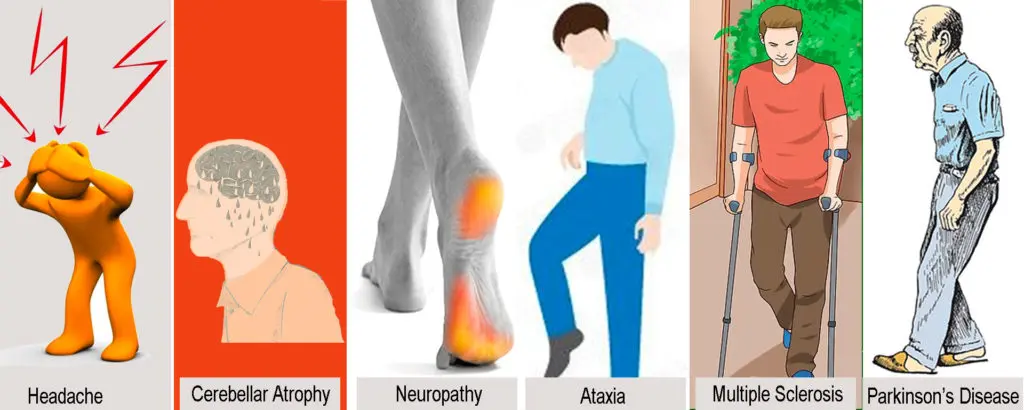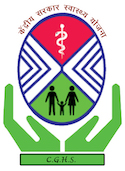You are not the only one seeking neurological treatment; there are more than a billion people just like you. Yes, neurological disorders are quite prevalent. And this number is increasing every day. There is no cure for Neurological diseases with today’s medical technology. But don’t lose hope. You can still lead a normal life by managing the symptoms and getting treatment for your neurological disorder. Here we will discuss the Ayurveda Treatment for Neurological Diseases.
One of the best ways to manage your neurological disorder is by staying positive and hopeful. Believe in yourself and believe that you can overcome this disease. Also, stay connected with other people who are also living with a neurological disorder. This will help you feel supported and not alone.
There are many different treatments for neurological disorders. Some people may need medication to control their symptoms, while others may need surgery or therapy. It is important to find the treatment that works best for you and stick with it. Don’t give up on yourself or your disorder.
Living with a neurological disorder can be tough, but it is not impossible. You can live a normal, happy life by managing your symptoms and getting the treatment you need. Stay positive, hopeful, and connected with others who are also living with a neurological disorder. You can do this!
Solving the complex: Ayurveda Treatment for Neurological Diseases
At Sukhayu Ayurved we are successfully helping our patients for 16 years with complete Ayurveda Treatment for Neurological Diseases.
Thousands have defeated the disability. And this is just because we have a proper approach to Ayurveda Treatment for Neurological Diseases.
When it comes to Ayurveda treatment of neurological disease. It is important to understand primarily what Ayurveda says about the nervous system. And secondly, what approach does Ayurveda take for the treatment of neurological disorders.
When we talk about neurological treatment of certain conditions, there are two aspects. One is- how doshas impact on body. Second is which dhatus are involved in the process of disease.
The main approach of Ayurveda is to bring back health. And this is not merely possible without adjustment of the biological processes. Ayurveda is not alone about home remedies. Ayurveda is all about balancing the vitality. And without healthy nervous system this is not possible. When we talk about health, it is as a whole.
Vaidya Pardeep Sharma on Neurological Diseases
First, we will address the approach of Ayurveda to the Nervous System. And afterward, we will talk about the treatment approach of Ayurveda for neurological diseases.
The complexity of the Nervous System
The nervous system is one of the most complex systems in the body. Where it consists of the brain, spinal cord, and a network of nerves that connect them. The brain controls all the activities of the body, and the spinal cord transmits messages between the brain and the rest of the body. The nerves carry these messages to and from every part of the body.
The nervous system is able to do its job because it is made up of thousands of different types of cells. These cells work together to process information and control the actions of muscles and organs. The cells are organized into small groups called ganglia, which are located throughout the body. Ganglia collect information from sense organs and send it to the brain for processing. They also send messages from the brain to the muscles and organs to control their actions.
The nervous system is responsible for all of our thoughts, feelings, and sensations. It enables us to see, hear, smell, taste, and feel things. It also allows us to move our bodies and interact with the world around us. The nervous system is a complex and amazing system that allows us to live our lives. The nervous system is one of the most complex systems in the body. It consists of the brain, spinal cord, and a network of nerves that connect them.
The brain controls all the activities of the body, and the spinal cord transmits messages between the brain and the rest of the body. Here nerves carry these messages to and from every part of the body.
So all together, we need to look at a very wider aspec of the disease.
Ayurveda About Nervous System
The three doshas are Vata, Pitta, and Kapha. Vata dosha governs space, time, and movement. Pitta dosha governs fire and energy. Kapha dosha governs the earth, water, and cohesion.
In Ayurveda, the nervous system is primarily influenced by Vata dosha in people with a predominantly fast metabolism – such as those who are thin or hyperactive. This includes people who have difficulty concentrating or who suffer from depression or anxiety.
Most people are not aware of the significant contribution that Ayurveda has toward a better understanding of the nervous system. Because we focus only on “materlaistic” nature. Not on the subtlest and profound aspect.
The nervous system is made up of two parts: the central and peripheral. The central part is influenced by the peripheral part and vice versa. The central part is responsible for integrating all sensory perceptions and motor activities in order to create a balanced individual.
In this section, we will focus on how Ayurveda helps us understand concepts about our nervous system such as the relationship between central and peripheral, sensory perception, and motor activities.
When it comes to Ayurveda, has its own vision of the human body. The core concepts of Ayurveda are not just similar to western medicines.
While modern medicine talks about anatomy and physiology separately. Ayurveda talks about anatomy in a different way. This ancient science considers either clinical anatomy or physiological anatomy. Therefore, there are least chances for exact details about some human body-related systems.
Everything in Ayurveda revolves around Doshas and Dhatus. So we need to know which dosha and dhatu are close to the nervous system. And first about neurological diseases. Here we go-
Neurological Diseases
Where the nervous system doesn’t work properly, these conditions are known as neurological diseases. The brain, spinal cord, and nerves together make the nervous system. The nervous system altogether controls the movements of the body. When something goes wrong with the nervous system. It will certainly impact everything that the nervous system is supposed to control. A patient affected by the nervous system will have trouble walking, speaking, swallowing, breathing, and learning too. The nervous system can impair memory, sense, and mood too.
These conditions might be very simple like- pain in any body part. But on the otherside these can be as complicated as multiple sclerosis or Parkinson’s disease.
The manifestation can be very much local like an optic nerve problem. And this can be as widespread as paraplegia. So the array of neurological issues is much bigger. Therefore when discussing about ayurveda treatment for neurological disease, we need to think properly.
When we look at neurological diseases these occur on three levels. Brain, spinal cord, and nerves. As much higher center will be affected that much complicated and widespread condition will be. Therefore it is always important to know about the location of the lesion or injury in such cases.
Neurological Diseases We Treat at Sukhayu

Here is the list of neurological disorders which are very common.
- Headache
- Cluster Headache
- Migraine
- Multiple Sclerosis
- Parkinson’s Disease
- Cerebellar Atrophy
- Neuropathy
- Diabetic Neuropathy
- Peripheral Neuropathy
- Spino-Cerebral Ataxia
- Cervical Myelopathy
- Trigeminal Neuralgia
There are many other neurological diseases. The list is endless. Therefore this list is summarised. We are providing the treatment of the above conditions mainly. If you have some other neurological condition not described here. Please contact us and consult Vaidya Pardeep for this.
Doshas and Neurological Disease
Vata represents the nervous system. This is a common belief. But this is partially true. This is something like saying only neurons are the nervous system. Without the support of many other things, the nervous system cannot work. In the human body, everything compliments each other. Similarly, all doshas complement each other. Yes, activities of the nervous system are close enough to Vata activities. But Vata is just dominant. Not alone responsible.
When some Ayurvedic person talks about Vata Vyadhi. It is about the dominance of Vata dosha in that condition. Rest two doshas will also be there. One needs to take care of other Doshas too while treating the Vata. Therefore while doing the treatment of neurological condition through Ayurveda, we need to make sure that we are balancing all the three doshas.
Therefore the main aim of the treatment is not just focused on Vata Dosha. But also on rest of the three doshas too.
Modalities of Ayurveda Treatment for Neurological Diseases
When it comes to Neurological disease treatment in Ayurveda is one of the oldest and most successful forms of treatment for neurological diseases. In Ayurveda, neurological diseases are considered to be caused by an imbalance in the three doshas: Vata, Pitta, and Kapha. Ayurvedic treatments for neurological diseases focus on restoring balance to the doshas and relieving symptoms.
There are a number of Ayurvedic treatments for neurological diseases. There can be effective in restoring balance and relieving symptoms, when applied and choosen properly. Some of these treatments include:
1) Ayurvedic remedies: There are a number of herbal remedies that can be used to treat neurological diseases. Some herbs that may be beneficial include Brahmi, Shankhapushpi, and Guggul. So there is a wide spectrum of medicines to help in the Ayurveda Treatment for Neurological Diseases.
2) Diet: A balanced diet is important for restoring balance to the doshas. Some foods that may be beneficial for neurological diseases include ginger, turmeric, and black pepper.
3) Panchakarma: Massage can be a beneficial treatment for neurological diseases. It helps to improve circulation and relieve tension in the muscles.
4) Yoga: Yoga is a helpful exercise for improving flexibility and relieving stress. It can be beneficial for neurological diseases.
There are many different Ayurvedic treatments that can be used to treat neurological diseases. Each person may respond differently to different treatments. So it is important to understand in case of all diseases.













